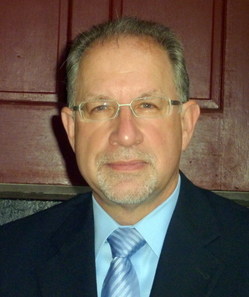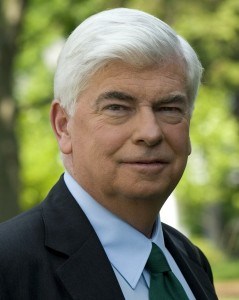 In the eyes of many entertainment executives, pressing fast forward to skip past commercials recorded by your DVR is a crime, and they want it stopped.
In the eyes of many entertainment executives, pressing fast forward to skip past commercials recorded by your DVR is a crime, and they want it stopped.
We’ve made progress. In the 1970s and early 1980s, those same executives were arguing recording a television show itself was a crime.
The copyright infringement wars continue, beyond college students facing ruinous lawsuits from the recording industry or movie studios sending a blizzard of subpoenas to Internet Service Providers seeking the names and addresses of those suspected of using file swapping networks.
With the increasing concentration and combination of entertainment conglomerates, the reflexive need to “control” the medium and means of distribution is gaining a receptive audience in Washington and in the courts, threatening to influence what you can and cannot do with the programming you pay to watch.
The impact is also weighing on innovative new technology from small companies like Aereo and much larger ones like Dish Network that have attempted to launch new services that challenge the conventional ways Americans watch entertainment. The result for all concerned: lawsuits designed to stifle anything the media business perceives as an imminent threat.
Dish Network has a new DVR box that can automatically skip past commercials on selected networks. The satellite company’s new “Hopper” DVR automatically records eight days’ of prime time programming from the four major American broadcast networks, analyzes the programming to find commercials, and allows subscribers to watch the recorded shows “ad-free” just hours after the original broadcast.
Major entertainment moguls immediately denounced the feature as criminal theft.
“If there were no advertising revenues, the free broadcast television model in the United States would collapse,” wrote an alarmed News Corp. (owner of FOX Broadcasting) in its complaint filed in Los Angeles federal court. That network also accuses Dish of violating their contract with FOX and copyright infringement.

“Of course, you know this means war.” — Dish’s new AutoHop feature raises the ire of the entertainment industry.
“This service takes existing network content and modifies it in a manner that is unauthorized and illegal,” CBS said in a prepared statement, echoing earlier statements that have historically argued recording, modifying, or re-purposing broadcast content in any way is automatically a violation of federal law, copyright, or the terms and conditions under which the network makes programming available for viewing.
NBC and ABC filed their own complaints against the technology as well.
Technically speaking, subscribers who pay a cable or satellite provider for television programming are already paying extra for the programming they are watching, negating the usual arguments commercial sponsorship covers the cost of watching “free TV” (that isn’t always free) and skipping commercials is the same as stealing.
Commercial television business models in the United States increasingly rely on “retransmission consent” fees — money paid by your satellite, cable, or phone company to the programmer for permission to carry a channel on their lineup. Virtually all of those fees are passed along to consumers as part of their monthly bill.
Some station owner groups are willing to play extreme hardball to get viewers to pay up -and- win the right to put a piece of tape over their fast forward buttons to keep them from skipping commercials on their stations.
Dallas-based Hoak Media is an example. Viewers in Panama City, Fla. were without WMBB-TV, the Hoak-owned ABC affiliate, on Dish Network for a week. Hoak Media pulled the plug on viewers earlier this month after Hoak demanded a 200% increase in retransmission consent payments and the disabling of Dish’s AutoHop commercial-skipping technology. Thirteen other Hoak stations around the country were also pulled off the satellite TV service.
“WMBB and Hoak don’t respect customer control — they are telling customers they must watch commercials,” Dave Shull, senior vice president of programming for Dish, said in a news release. “Channel skipping has been around since the advent of the remote and we think Hoak has taken an incredibly hostile stance toward their viewers.”
WMBB’s station management appeared caught off guard by their owners back in Dallas. WMBB General Manager Terry Cole admitted he didn’t even know about the AutoHop feature Hoak was demanding be disabled. A week later, the dispute appeared settled and the stations were back on Dish.
Entertainment executives are hopeful their deep pockets and industry partnerships with content distributors will ultimately win the day. They have a few things they can count in their corner.
In 2002, some of the same companies protesting Dish filed suit against ReplayTV, which had its own automated commercial skipping technology. The case dragged its way through the courts, with mounting legal expenses eventually forcing ReplayTV out of business. Problem solved.
The use of deep pockets have also intimidated other innovative ventures such as Aereo, which delivers over-the-air New York City stations online to a paying local subscriber base.
Innovation like that is also a concern to the cable industry, which itself has been around since the 1970s. Developing an online alternative to the local cable company puts cable TV executives in the same position entertainment industry executives live to fear: a threat to the business model that has earned billions in profits. In those terms, some cable operators seem willing to support the entertainment industry, even at the expense of their own customers.
 That may explain why Time Warner Cable applied for, and won, their own patent for technology that disables fast-forward functionality on digital video recorders.
That may explain why Time Warner Cable applied for, and won, their own patent for technology that disables fast-forward functionality on digital video recorders.
“Advertisers may not be willing to pay as much to place advertisements if they know that users may fast forward through the advertisement and thus not receive the desired sales message,” the cable company explains in its patent application. “Content providers may not be willing to grant rights in their content, or may want to charge more, if trick modes are permitted.”
The technology would look for digitally embedded cue tones, which are today used mostly to let local stations and cable operators insert their own local advertising messages on a network feed, to block fast forwarding past those ads.
Time Warner Cable is not likely to implement the technology anytime soon, not if they expect customers to continue to pay well over $10 a month for a recording device that won’t allow them to skip commercials.
Comcast is taking a different approach, considering plans to insert billboard advertising messages that automatically appear on-screen whenever a customer hits their fast-forward button. Broadcasters and networks have no love for that feature either, claiming it changes the programming the consumer recorded and represents… yes, copyright infringement.
Courts will once again have to find a balance between consumers’ home recording rights and the rights of large entertainment and cable companies. With more courts increasingly favorable to the notion of corporate rights enjoying equal prominence with those of citizens, who ultimately wins the right to your fast forward button remains a toss-up.


 Subscribe
Subscribe







